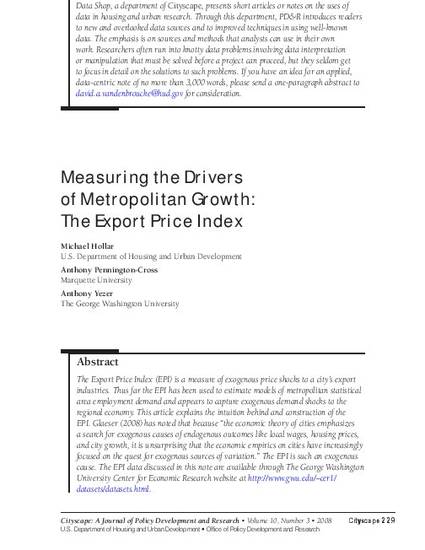
The Export Price Index (EPI) is a measure of exogenous price shocks to a city’s export industries. Thus far the EPI has been used to estimate models of metropolitan statistical area employment demand and appears to capture exogenous demand shocks to the regional economy. This article explains the intuition behind and construction of the EPI. Glaeser (2008) has noted that because “the economic theory of cities emphasizes a search for exogenous causes of endogenous outcomes like local wages, housing prices, and city growth, it is unsurprising that the economic empirics on cities have increasingly focused on the quest for exogenous sources of variation.” The EPI is such an exogenous cause. The EPI data discussed in this note are available through The George Washington University Center for Economic Research website at http://www.gwu.edu/~cer1/datasets/datasets.html.
Available at: http://works.bepress.com/anthony_pennington_cross/18/

Published version. Cityscape, Vol. 10, No. 3 (2008): 229-235. Permalink. © 2008 The U.S. Department of Housing and Urban Development's (HUD's) Office of Policy Development and Research (PD&R). Used with permission.